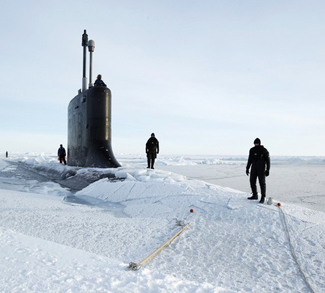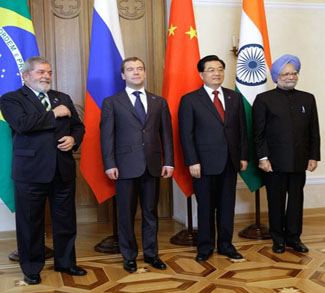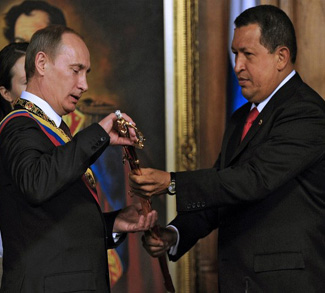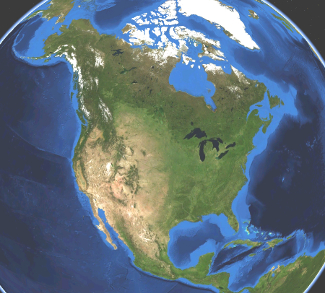The rules governing the scramble for the Arctic are beginning to crystalize and surprisingly enough they indicate a peaceful process of conflict resolution going forward.
The past few years have provided us with several instances pointing to potential military conflict over the Arctic: Russia’s flag-planting photo-op, the resumption of long-range bomber flights, the scrambling of Canadian CF-18s, and smatterings of tough talk from the governments of Canada and the United States, just to name a few. Yet, the picture emerging as of late is one of accord among Arctic nations. This trend is likely to continue, as it is in the best interest for Arctic states to deal with conflicting claims in a peaceful and orderly fashion, emphasizing closed organizations like the Arctic Council. This will ensure that non-Arctic players like China and the EU won’t have a chance to assert themselves in the Arctic, or even worse, attempt to classify the region as a global commons in the same vein as Antarctica.
Nowhere is the conflict-turned-cordial theme more obvious than in Canadian Prime Minister Stephen Harper’s recently-revealed private opinions on the region. This information was made public via the latest round of Wikileaks diplomatic cable disclosures. It seems that, despite a public posture that implies otherwise, Prime Minister Stephen Harper is convinced that there is no possibility of military conflict in the region. He is so sure of this that apparently he came down hard against a NATO presence in the region, deciding that it wasn’t worth giving non-Arctic NATO members influence in an area where ‘they don’t belong.’ The leaked diplomatic cables paint a picture of a Canadian government more interested in capitalizing on public anxieties surrounding the Arctic to garner votes and justify military spending increases rather than one that is smitten with geopolitical anxieties over the future status of its Arctic border.
The Arctic Council stands out as an ideal institution for handling disputes between Arctic countries without involving outside parties that ‘don’t belong.’ Last week’s summit produced an agreement allowing for international search and rescue teams to cooperate and not be handcuffed by issues of sovereignty. Although this was the factoid that featured prominently in news stories, there were two other developments of far greater importance. First off, there was an agreement to establish a permanent secretariat for the Arctic Council in Norway; a reflection of the institution’s growing importance moving forward. And secondly, Arctic Council members agreed on criteria by which non-Arctic states can achieve permanent observer status in the council (a classification that the EU and China have long sought). Chief among these criteria is the acceptance that Arctic countries will remain sovereign over their corresponding part of the Arctic. In other words, for a non-Arctic country to become a permanent observer and thus pull up a chair at the Arctic game they must first give up all pretensions that the region will be a ‘global common.’
This suggests that China will likely ascend as a permanent observer in the Arctic Council. Officials in Beijing are well aware that they are trapped by their own emphasis on sovereignty in international society when it comes to the Arctic. Even though the opening of the region will reap economic and military dividends for Arctic states, China knows that its lack of an Arctic border means that the best it can do is try to avoid Russian domination over Arctic shipping routes; a scenario that could harm Chinese global trade interests. Thus Beijing will likely proceed on a two-track policy of seeking influence in the Arctic indirectly via smaller Arctic states such as Norway and Iceland as well as directly through seeking permanent status in Arctic international organizations.
Moving forward, we should be careful to view Arctic developments through the lens of domestic politics in Arctic states. Is Moscow really concerned over the defense implications of its Arctic border, or does the resumption of Arctic long-range bomber flights provide a cheap and easy feel-good boost for Russian nationalism? Does Canadian Prime Minister look north and see conflict, or is the Arctic simply a good fear hypothetical to justify the purchase of F35 Joint Strike Fighters?
If one goes by the behaviour of Arctic states,they’re less concerned about conflict amongst themselves and more anxious over the possibility of outside parties trying to stick their thumb in the Arctic pie.




